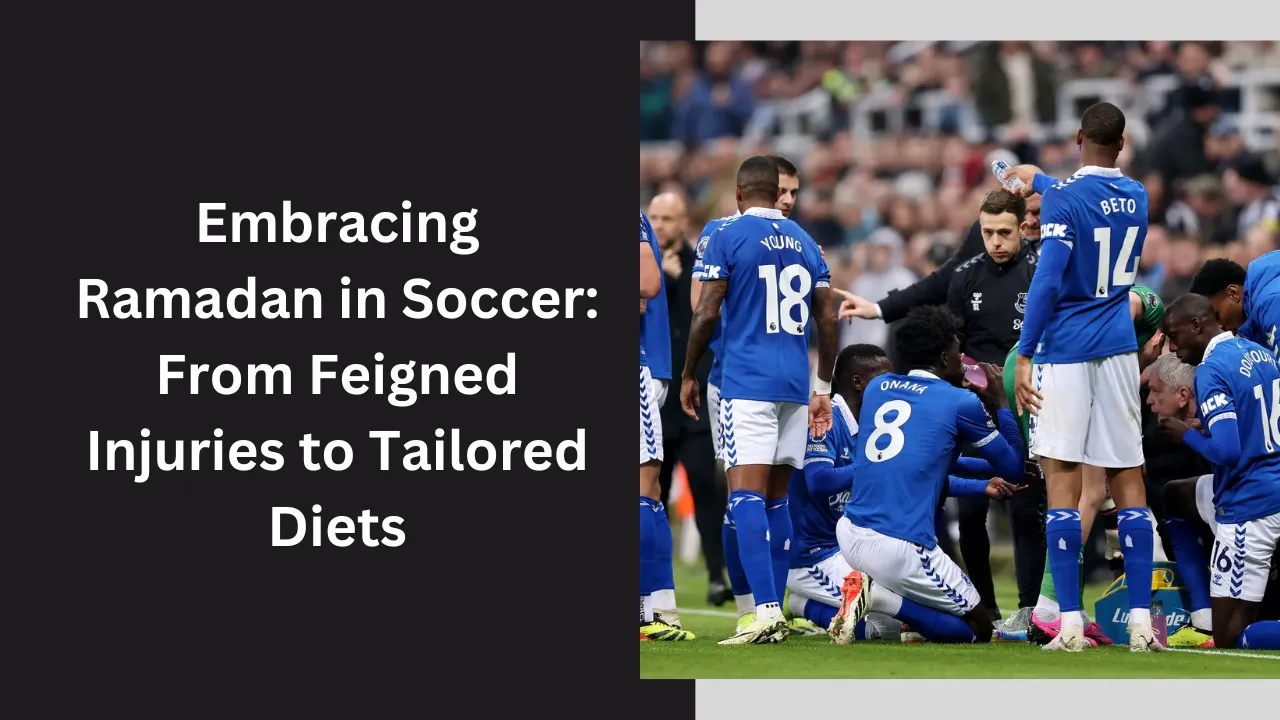In the competitive world of soccer leagues, Muslim athletes have historically faced challenges observing Ramadan, often resorting to covert tactics to sustain fasting during matches and training sessions. However, recent years have witnessed a significant shift in the sport’s approach, with leagues and teams increasingly accommodating the religious practices of their Muslim players.
Challenges Faced by Soccer Leagues Players During Ramadan
During Ramadan, soccer players in various soccer leagues face unique challenges that can affect their performance on the field. One prominent issue is the adjustment of training schedules and match timings to accommodate fasting hours. The rigorous physical demands of soccer require players to maintain peak performance levels, but fasting can lead to fatigue, dehydration, and decreased energy levels, posing significant challenges to players.
Strategies to Manage Fasting in Soccer Leagues
To address the challenges of fasting during Ramadan, soccer leagues and teams have implemented various strategies to support players. One common approach is to modify training schedules, shifting sessions to later in the evening or early morning to allow players to break their fast and replenish their energy before engaging in strenuous physical activity. Additionally, coaches and nutritionists work closely with players to develop tailored meal plans that provide sufficient nutrients and hydration during non-fasting hours, ensuring optimal performance on the field.
Balancing Religious Observance and Professional Obligations
For Muslim soccer players, observing Ramadan is a religious obligation and a deeply personal and cultural practice. However, balancing religious observance with the demands of professional soccer can be challenging. Some players may choose to postpone fasting until the off-season or make exceptions for match days, while others may adhere strictly to fasting despite the physical toll it may take on their performance. Finding the right balance between religious commitments and professional obligations requires open communication and understanding between players, coaches, and team management.
Impact on Gameplay and Sportsmanship
The observance of Ramadan can also have an impact on gameplay and sportsmanship in soccer leagues. Some players may experience decreased stamina and endurance during fasting hours, leading to changes in playing style and performance on the field. Additionally, the physical effects of fasting, such as dehydration and fatigue, can increase the risk of injuries, prompting players to adopt more cautious tactics or even resort to feigning injuries to conserve energy. However, despite these challenges, Ramadan also serves as a time for reflection, discipline, and unity among players, fostering a sense of camaraderie and mutual support both on and off the field.
The Early Struggles:
Youseff Chippo’s experience as a young soccer professional in Europe epitomizes the initial hurdles faced by Muslim players during Ramadan. Tasked with proving his worth at Portugal’s F.C. Porto in 1997, Chippo concealed his fasting until physical strain forced him to reveal the truth. His subsequent struggles prompted Porto to devise strategies to support his fasting regimen.
Resourcefulness Amidst Resistance:
In an era when official accommodations were rare, Muslim players relied on ingenuity to manage their fasts. From staged injuries to sideline handoffs of dates and water, players navigated fasting amidst the game’s relentless pace. However, these makeshift solutions highlighted the need for broader acceptance within the soccer community.
A Shift in Attitudes:
Soccer’s evolving landscape now embraces Ramadan observance, reflecting both the sport’s global diversity and the economic significance of Muslim players. Premier League clubs, in particular, have adopted tailored nutrition plans, adjusted practice schedules, and even sanctioned pauses during matches to facilitate fasting.
Player Advocacy and Team Support:

The proactive measures taken by clubs underscore a newfound recognition of the importance of accommodating religious practices. High-profile players like Liverpool’s Sadio Mané and Arsenal’s Mohamed Elneny have advocated for changes in training schedules to align with Ramadan, demonstrating the mutual commitment between players and teams.
Challenges and Cultural Nuances:
Despite progress, cultural barriers and differing regulations persist. France’s soccer federation, for instance, faced criticism for its stance on Ramadan fasting, highlighting the ongoing tension between secularism and religious accommodation in sports. Such challenges underscore the need for ongoing dialogue and understanding.
Emoji Kitchen is a fun feature that allows you to combine different emojis to create new, unique ones. It adds a creative twist to your conversations, making them more lively and expressive. But how exactly does Emoji Kitchen work? Let’s dive in to understand the magic behind it.
Fostering Inclusivity and Respect:
As soccer leagues continue to evolve, fostering inclusivity and respect for diverse religious practices remains paramount. The growing acceptance of Ramadan observance in the sport enhances player welfare and promotes a more inclusive and understanding sporting culture.
Conclusion:
The journey towards accommodating Ramadan in soccer leagues reflects broader societal shifts towards inclusivity and cultural sensitivity. By embracing diversity and actively supporting Muslim players, the sport not only enhances its competitive landscape but also sets a precedent for inclusivity and respect across all levels of the game.
Watch Here Live Soccer Matches








